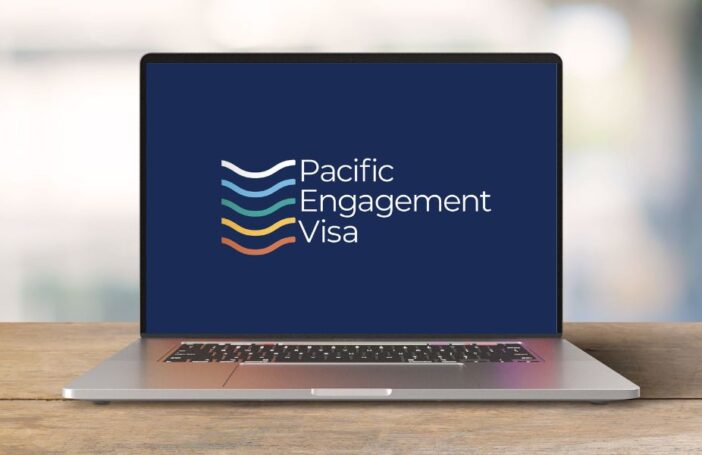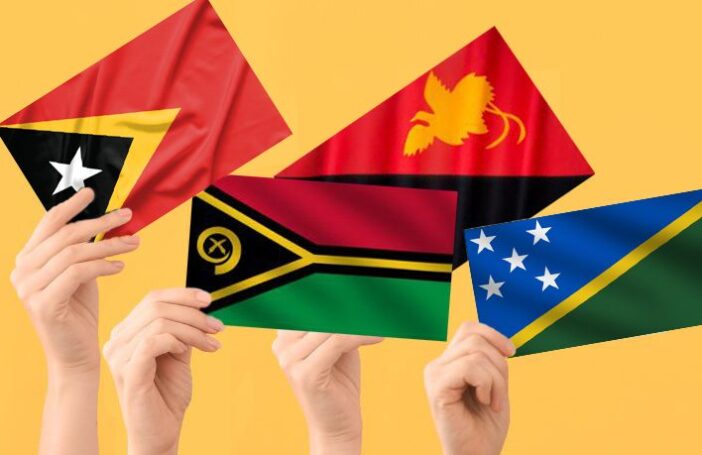For the lucky 3,000 or so from the nine Pacific countries and Timor-Leste who were randomly selected in a ballot process to apply for Australia’s Pacific Engagement Visa (PEV), the countdown to submit their visa applications by 12 December (17 December for Federated States of Micronesia and Palau) is fast approaching.
The opportunity to start a new life in Australia is dependent on the primary applicant and/or legal partner or spouse’s ability to convince employers to employ them. What happens if they are unable to satisfy the job offer requirement in time?
PNG received the highest quota of 1,350 visas. The success of these ballot winners in securing visas will be the true litmus test of the success of the PEV.
PNG ballot winners who contacted the author via the Devpolicy Blog comments page, direct emails, LinkedIn and Facebook were invited to voluntarily participate in a survey. The invitation was also circulated on a WhatsApp group set up by a third-party PNG-based organisation for PEV ballot winners.
From a sample size of 80+ selected PEV candidates, 33 respondents participated in an online survey. While we cannot be sure the survey is representative, it provides some key insights that deserve immediate attention.
Of all the 33 respondents, only three had received job offers. One, a male, currently in Australia on a Pacific Australia Labour Mobility (PALM) scheme visa, secured a job offer with their current host employer and recently received PEV visas for himself and his family.
Two female applicants (one single and the other in a de facto relationship with dependants) have secured a letter of offer. Both are pending a visa outcome.
A 1:11 ratio of success is clearly not good enough.
23 of the 33 applicants said that securing a job offer was the hardest part of the process. Another five said that documentation was the most challenging part — for example, getting a passport for dependants and obtaining a police clearance.
The ballot winners have been given 120 days (about four months) to complete their application. When asked if this was enough time to submit a complete application that included a job offer, almost 90% said “no”. When asked what timeframe would be more reasonable, half of respondents said “six months” and one-quarter said “12 months”.
It’s worth noting that the New Zealand Pacific Access Category lottery winners are given eight months to apply. The United States Diversity Visa Lottery winners have 12 months to complete and submit their application – and it does not have a job-offer requirement.
Based on my sample, the cohort of PNG PEV applicants possess skills and experience that should make them highly employable. Almost 40% have Bachelor degrees and around 20% have Masters degrees. Work experience ranges from early career administrative positions to more than 15 years of experience in senior roles in both the private and public sectors. Professions represented include administration, education, nursing, forestry, engineering, banking and finance, retail, logistics, mining, and law.
Several applicants commented that the biggest problem is that employers are not familiar with the PEV and don’t recognise the visa as having work rights.
In November the PEV Support Service began to provide support letters to ballot winners upon request. These letters explain that applicants have work rights, and the letters can be attached to job applications.
70% of respondents said they had received such a letter. While the letters are useful, they should have been sent out in August, when ballot winners were notified of their selection.
Generally, respondents were unhappy about the way the PEV Support Service, which DFAT has put in place to help PEV applicants, is operating. A clear majority responded with unsatisfactory or highly unsatisfactory when asked to rate the Support Service information sessions, the collection of information from applicants to support job applications, and the time it took the Support Service to respond to applicants.
Respondents also noted confusion in the visa instructions regarding timelines and uploading of documents. According to a recent official Australian Government PEV Facebook page, only passport details are needed to submit an application on time. Other documents like a job offer can be uploaded “at a later date” without any time restriction. However, this is not well understood.
Papua New Guinean applicants will have spent at least K2,700 (A$1,010) just to meet the post-ballot costs (health, police and visa fee) and this is for the primary applicants alone. The total costs spent would be much higher for those who have dependants.
A low success rate for the PEV is unfair to this pioneer cohort and not a good look for the Australian Government. Three key changes are needed.
First, the PEV Support Service needs to step up and do more to partner with employers who will recruit PEV applicants and already have experience recruiting from the Pacific. A jobs portal to connect PEV applicants with registered, interested employers would be very useful.
Second, clear and consistent communication is needed to reassure those selected in the ballot that only a passport is needed to submit an application by the deadline. Many applicants continue to think they need a job offer before they can submit a complete application, as well as a police clearance and health assessment. Despite the recent additions, some of the information provided on the PEV Home Affairs website can still be read to imply that all required documents must be provided at the time of submission.
Third, the PNG government needs to prioritise passports and police clearances for PEV applicants and their dependents.
As Australia’s first and historic migration policy exclusively for the Pacific and Timor Leste, the PEV was always going to present new challenges and learnings. Rather than making this first PEV round a failure, clearer communication that gives the pioneer cohort more help and time to find their first Australian job is both common sense and essential for achieving overall success.
Natasha Turia is presenting a Three Minute Aid Pitch titled ‘2025: the perfect time for an Australia-PNG Engagement Visa’ at the Australasian AID Conference at 4.30pm AEDT on 5 December. This conference session will be available via the Devpolicy Youtube livestream.






Hi Natasha,
How are other Pacific Island Country applicants in recent PEV round experiences in securing jobs in Australia under this scheme? Was there any data collected in your sample on other Pacific Island Country PEV applicants experiences in the process of securing Australian employers in comparison to PNG PEV applicants?